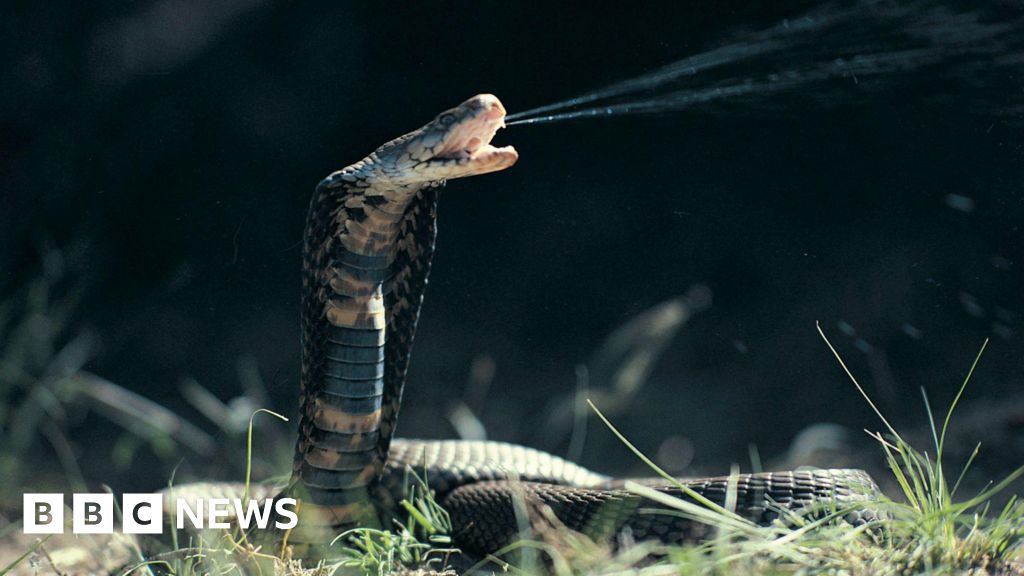Image source, Getty Images
A team of scientists based in Australia, Canada, Costa Rica and the UK has discovered that a commonly prescribed drug to thin the blood can be repurposed as a cheap antidote to cobra venom.
About 138,000 people die from snakebites each year, most of which occur in poor rural areas of low- and middle-income countries in Africa, South and Southeast Asia.
More than 400,000 develop necrosis, where the tissue around the bite area dies and turns black.
In parts of Africa and India, the majority of bites come from cobras, and heparin can neutralize a necrotic toxin in the venom of spitting cobras.
Although the drug won’t work on all snake venoms, scientists say it could be cheaper and more flexible than existing antivenoms, many of which only work on one type of snake and don’t prevent necrosis.
The drug has already been tested in mice, and the next step is to test it in humans.
“The Battle of the Worlds”
Lead study author Professor Greg Neely, from the University of Sydney, said: “Our findings have the potential to significantly reduce the devastating necrotic injury caused by cobra bites, and may also slow the release of venom, improving survival rates.”
“Because all biological agents like venoms and toxins require some sort of cooperation on the part of the host, i.e. the human, our study aimed to identify what it is in humans that interacts with the venom to cause necrosis and death.”
“What we’ve found is that when you take different venoms from very different species, there are several ways in which they can interact with human cells.
“One of the great things from a science perspective is we think we can identify four or five different ways that the venom as a whole interacts with cells, and then we can create a universal antidote that can stop populations of many species.”
“We hope that our new cobra antivenom will help global efforts to reduce deaths and injuries from snakebites in the poorest parts of the world.”
“Lifelong disability”
Lead author Tian Du, a PhD student at the University of Sydney, called it a major step forward.
“Heparin is cheap, ubiquitous and listed as an essential medicine by the World Health Organization,” she said.
“If human trials are successful, it could potentially be deployed relatively quickly as a cheap, safe and effective drug for treating cobra bites.”
Another scientist, Professor Nicholas Casewell, director of the Centre for Snakebite Research and Intervention at the Liverpool School of Tropical Medicine, said: “Snakebite is one of the most neglected tropical diseases and its burden falls overwhelmingly on rural areas of low- and middle-income countries.”
“Our findings are intriguing in that current antivenoms are largely ineffective against severe, localized envenoming, which is characterized by painful, progressive swelling, blistering and tissue necrosis around the bite site.”
“This can lead to loss of limb function, amputation and lifelong disability.”


